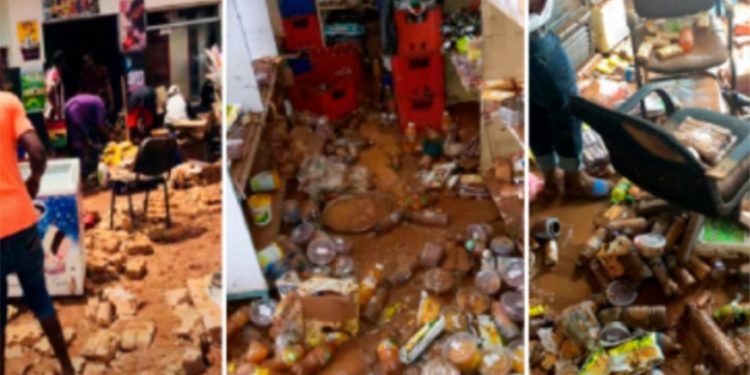The findings released in a multi-agency report, under the title; “The State of the Climate in Africa 2019” cited that natural disaster losses have continuously escalated due both to continued building in high-risk areas and due to climate changes that are altering extreme events around the globe.
Eventually, the report coincidentally followed a prediction from the Rwanda Meteorology Agency of above-normal rains during November in most parts of the country.
The expected rainfall ranges between 100 and 300 millimetres, an amount slightly above long-term average of November. In what it said would be a little beyond what rained in October.
However, as climate change continues to influence extreme events, experts believe that the role of insurance in adapting to these changes is becoming an increasingly important topic.
Statistics from the Ministry in charge of Emergency Management shows that disasters such as heavy rains have left led to the loss of property worth billions of francs in recent years.
In 2019, statistics from the ministry show that close to 6000 houses were damaged and at lease at least 10, 6o0 hectares of crops destroyed.
In 2018, over 15,000 houses were destroyed, 9,412 hectares of crops damaged while 797 deaths of livestock were recorded. An assessment conducted in 15 districts, which were the most affected, indicates that, in monetary value, the country lost Rwf204 billion due to disasters in 2018.
In 2017, disasters damaged 5,057 houses, destroyed 5,111 hectares of crops and killed 589 livestock, among other properties.
It is not uncommon to come across tales of cars, houses and other property damaged during heavy rains with owners counting losses.
While little can be done to mitigate the occurrence of the perils and disasters, adequate insurance coverage ensures that firms’ and individuals’ are cushioned from the impacts that could have adverse impacts.
Insurance experts say that adequate insurance coverage would ensure that in the event of the occurrence of a peril, firms do not have to permanently halt operations and can continue operations on compensation by their respective insurers.
Property owners such as cars and homeowners, experts say do not have to count losses entirely as their previous financial position can be restored.
For insurance to be effective and sustainable and for it to work for the most vulnerable, the development and disaster risk reduction (DRR) sectors need to engage with it.
In the next paragraphs, Doing Business explains how disaster risk insurance works and the role it plays in preventing negative economic hardship after a disaster.
In theory a Disaster risk insurance scheme cover—against a premium—the costs incurred by the insured entity from extreme weather and natural disasters (such as earthquakes or floods), according to the United Nations Development Programme.
According to the UN agency, if the event occurs, the insurer refunds a percentage of the costs incurred.
How does it work?
According to UNDP, disaster risk insurance triggers a pay-out by the insurer when a disaster occurs. The disaster could be a volcanic eruption, or when rainfall falls below a certain threshold.
At its most basic level, insurance commits an individual or entity to pay a fixed amount at regular intervals (premium) into a common fund (the scheme), from which money is retrieved (pay-out) to compensate for losses arising from a predefined event (coverage).
For the most part, the pay-out helps to moderate the financial impact of external shocks, so that the livelihood and business of the insured are not jeopardized by the occurrence of an extreme natural event.
Others are property and industrial and agricultural assets, natural capital assets, such as natural forests, coral reefs and mangroves, can potentially be insured.
Ordinarily, disaster risk insurance covers hazards arising from geological, meteorological, hydrological, climatological, oceanic, biological, and technological/man-made events, or a combination of them.
Natural hazards include earthquakes, floods, storms, tsunamis, droughts and freezes.
Man-made hazards can also be insured against, including air/water/soil pollution, nuclear radiation, toxic waste, dam failures, transport accidents, factory explosions, fires, and chemical spills.
Meanwhile, the insurance schemes can be private or public, mandatory or voluntary, direct or indirect.
The government which in most cases happens to be the insurer of last resort in the event of natural disasters, can rely on the private sector for insurance schemes or establish public social security schemes on its own or in partnership with other governments.
In developed countries the insurance market is dominated by private companies offering commercial products.
The market is composed of insurance companies (that sell insurance to consumers) and re-insurance companies (that buy, pool together and eventually securitize insurance portfolios across, time, geography and risk categories).
Even in private-sector dominated markets, access to disaster risk insurance schemes is often incentivized, for example through tax deductions.
According to the UNDP report, the availability of disaster risk insurance schemes in the developing world is growing.









